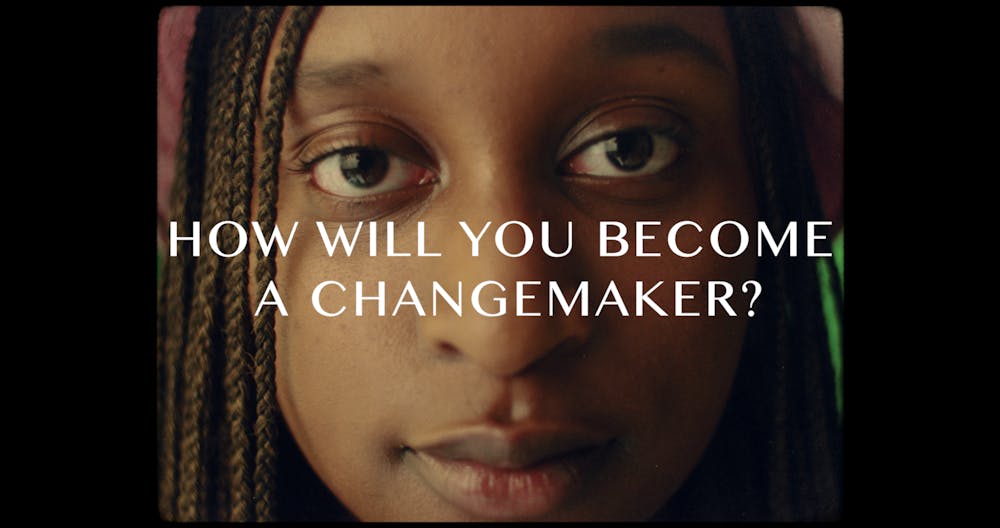You may know Gucci as a company devoted to high-class fashion for the wealthy, but this year they are reaching out to a different crowd.
Gucci sent out a press release on Oct. 7 announcing the Gucci Changemakers Initiative, a program set to invest $6.5 million in total dedicated to community service and diversity in the fashion industry.
In collaboration with the Council of Fashion Designers of America, Gucci Changemakers will allot $5 million to nonprofits centered on social change and $1.5 million to scholarships for students interested in a career in fashion.
The scholarship will be distributed over four years between the Gucci Changemakers Scholars and Gucci Changemakers X CFDA Scholars by Design scholarships. Financial awards will be awarded for the 2020-2021 academic year, and each student will receive at most $20,000.
“Change does not happen in theory, it happens in community,” said Changemakers Council Co-Chair Cleo Wade in the short film in which the scholarship was announced. “We are bringing the Gucci Changemakers Initiative to life by bringing not only funds, but also time, energy and care to communities that have been historically and systemically under-resourced and overlooked for too long.”
These changes in the fashion industry have become a central focus for sophomores Rachel Lee and Natalie Senft, co-presidents of AU’s new fashion club, Revolution AU Fashion Society. Better wages and ethical clothing production are paramount to the fashion industry, they said.
“[Gucci is] like a role model in the fashion industry,” Lee said. “And, with any role model, they have to be acting appropriately in according to what is most just and ethical.”
Revolution AU had a large turnout at their interest meeting, and almost 100 people have joined their email list. While Senft and Lee know these numbers do not translate into full club participation, they reveal how many students care about fashion and are looking for an outlet to pursue it.
Revolution AU became an official club on Nov. 8, and the support from faculty and students has been “overwhelmingly positive,” Senft said. Senft and Lee are working alongside professors in the Kogod School of Business to create a fashion class and, in the future, possibly a fashion major, Lee said.
These changes will affect students like Camilla Salemme, a junior in Kogod and minoring in studio art. She is applying for the scholarship and looking to pursue a career in advertising in the fashion industry.
“I think [Gucci has] the voice to make a change, and the fact that they’re doing it is important,” she said.
One of Salemme’s passions is seeking environmentally sustainable fashion. She thrifts or finds clothes on Depop and Poshmark instead of buying new, she said.
Gucci Changemakers’ work is vital in order to evolve the fashion industry in such ways towards better sustainability and diversity, Salemme said.
“[Gucci has] the power and the voice to influence a lot of people and influence a lot of celebrities,” Salemme said. “Everyone that wears Gucci then represents their image.”
Salemme grew up in Milan, Italy, and was taken by the allure of the fashion industry. The excitement and spectacle that surrounds fashion week in Milan would draw anyone into this line of work, she said.
Growing up this close to the center of the fashion industry, Salemme also saw the uglier side of it.
“If I had seen, around Milan, models of different sizes [that were] more diverse, not only blonde and white models, I would have felt better about myself,” she said. “Instead, at the time, it was very like, ‘No, this is how beauty is defined, and this is what you have to be to be beautiful,’ and I didn’t feel accepted.”
It is experiences like Salemme’s that make her believe in the mission of the Gucci Changemakers scholarship. With better diversity in the industry, fewer people will feel as insecure as she did, she said.
“The models on runways are getting so much more diverse – which is incredible – from shapes to sizes to different types of people and ethnicities and backgrounds,” Senft said. “Which is awesome, but there’s always more that can be done.”
“You don’t realize how little representation there was until there is representation,” Lee said.
While Gucci’s new initiative is centered on diversity, the company has been in trouble in the past for racist apparel. Earlier in 2019, they were forced to stop selling a turtleneck sweater in response to an uproar over the item’s striking resemblance to blackface.
At the beginning of this year, however, Gucci President and CEO Marco Bizzarri began a company-wide initiative focused on diversity. The initiative involved creating Gucci Changemakers and hiring Renée Tirado as the company’s first global head of diversity, equity and inclusion.
“We have always believed in the importance of creating a more inclusive and diverse industry, so we must invest in and empower the next generation of creatives, designers and leaders,” Bizzarri said in the scholarship press release.
To apply, students must either plan to pursue or be currently pursuing a bachelor’s degree in North America at a four-year college or university. D.C. students will be granted special consideration since they study in one of 12 Gucci Changemakers cities, according to the press release. All applications for this scholarship are due online at 11:59 p.m. on Dec. 31.





